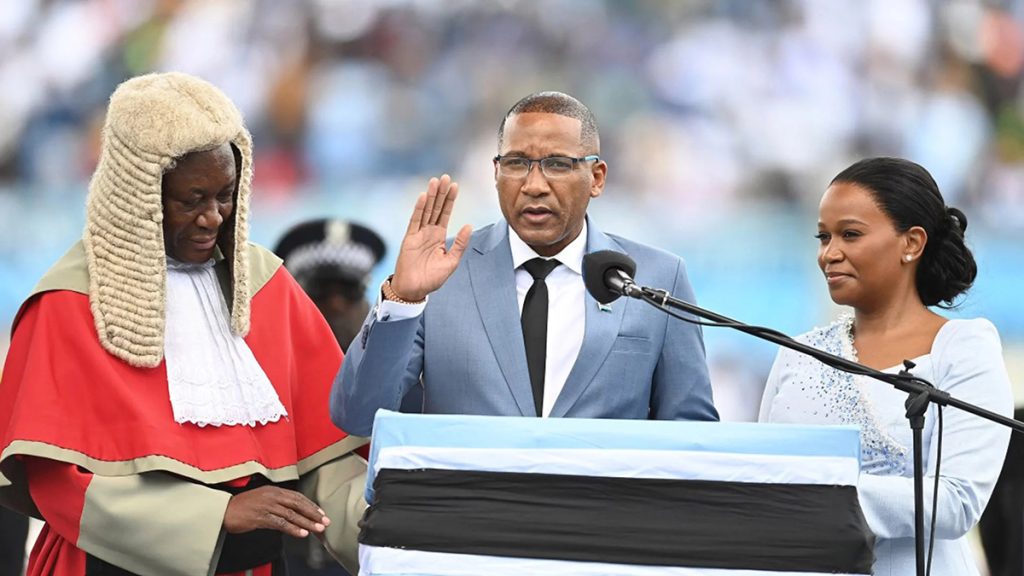On November 11, 2024, Botswana swore in Duma Boko as its new president, marking a significant moment in the country’s political history. This transition of power comes after the general elections held in October 2024, where Boko’s party, the Botswana National Democratic Party (BNDP), secured a majority in Parliament. His election represents a shift in the political landscape of Botswana, which has been predominantly led by the Botswana Democratic Party (BDP) for over five decades.
Duma Boko, a seasoned politician and lawyer, takes office at a critical juncture for Botswana, a nation that has long been recognized for its stable democracy, strong economic foundations, and commitment to good governance. His election marks the end of a 58-year rule by the BDP, which was led by former President Mokgweetsi Masisi until his defeat in the recent polls. Masisi, who had been in power since 2018, faced significant opposition for his handling of the economy, particularly in response to the global pandemic and challenges in the diamond industry—Botswana’s main economic driver.
Boko’s rise to the presidency is seen as a victory for democratic processes and opposition unity in the country. The BNDP, under his leadership, managed to successfully unite opposition factions that had previously struggled to challenge the dominance of the BDP. Boko’s political career has been marked by his vocal criticism of the BDP’s policies and his calls for a more diversified economy, increased transparency, and a stronger focus on social welfare. His platform resonated with many Botswana citizens, particularly those disillusioned by the economic challenges facing the nation, such as high unemployment rates and underdeveloped sectors outside of mining.
In his inaugural speech, Boko outlined his vision for Botswana’s future, emphasizing social and economic reforms that would aim to reduce inequality and foster sustainable development. He also reiterated his commitment to maintaining Botswana’s reputation for political stability and democratic integrity while addressing pressing issues such as climate change, education, and healthcare.
The transition has been largely peaceful, a testament to Botswana’s strong democratic institutions. As one of Africa’s most stable democracies, Botswana has set an example for other nations on the continent in terms of democratic transition and governance. Duma Boko’s presidency ushers in a new era for Botswana, and the country’s citizens and the international community alike will be watching closely to see how his leadership will unfold in the coming years.
